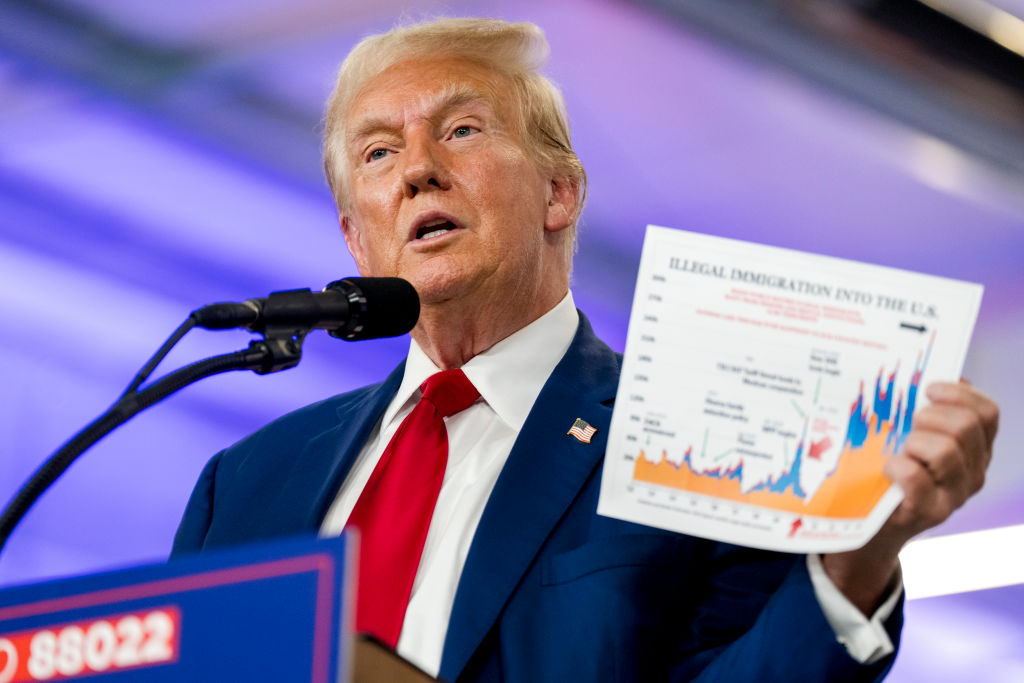During a recent appearance on The Joe Rogan Experience, comedian Louis C.K. stated a position that many on the left believe but are unwilling to admit: America should open its borders to the world.
“My feeling is they should open the border,” he explained. “Just let everybody pour in… Then there will be all these problems, well, there should be. It shouldn’t be so great here. It is a weird thing to sequester a certain group of people and keep upping their lifespan and their lifestyle.”
As someone who’s spent most of his journalistic career railing against mass immigration, my initial reaction was one of scorn. Yet as a waiter presented a check to me at a restaurant in Medellin, Colombia, I realized that to some extent Louis Alfred Székely (his real name) had made a profound point: America is far richer than its people realize. On the issue of immigration, we’re becoming a victim of our own success.
The meal for which I was being charged was not fine dining. In this typical Colombian diner, the “meal deal” consisted of chicken and fries, soup, and watered-down pineapple juice. The bill came to 12,000 Colombian pesos, or approximately $2.50. Needless to say, they did not accept American Express.
The staggeringly affordable cost got me thinking about how it compared to a modest American diner. It is, of course, difficult to quantify what the average meal in such an establishment costs, yet for a drink, soup, and main dish, one could conservatively estimate around the $25 mark. In other words, ten times the price. There’s another comparison that puts the disparity into perspective. In the US, where tips run as high as 30 percent, most waiters would be actively insulted by an offering of $2.50. That is to say, the cost of eating out in Colombia does not even cover a fraction of an expected American service charge.
This points to a worrying trend: that America’s economic dominance is entirely unsustainable. Whether it be food, healthcare, transport, or other living essentials, both wages and the cost of living in the United States are outstripping its neighbors by an alarming ratio. Whereas Americans earning $40,000 a year may worry about making ends meet, those in Latin America are often earning 5 to 10 percent of that for the same job. Although the cost of living is obviously far lower, many products and services (cars, electronics, travel) cost about the same. In an increasingly globalized world, this is not sustainable.
A majority of Americans agree that exploring economic opportunities is not sufficient justification for someone to be granted US residency and the right to work. However, many fail to consider what would happen if the shoe were on the other foot. If salaries in Canada were ten times that of their southern neighbor, how many Americans would stop at nothing to relocate up north? Mere human nature dictates the number would likely be in the tens of millions.
As the pull factor becomes ever greater, the country is facing a binary choice. The first is the vision espoused by Louis C.K. in which America opens its borders with a view to allowing a process of economic alignment with the rest of the continent. The second, espoused by MAGA Republicans, is an aggressive immigration policy that puts an end to all illegal border crossings as well as a drastic reduction in legal migration, both of which will strangle access to cheap labor and ease the downward pressure on wages.
At present, the Biden administration is allowing illegal immigration to thrive, all while maintaining the pretense of rigorous enforcement. The result has been a humanitarian crisis at the southern border and fury among Americans who see the threat of depressed wages and cultural displacement as greater than ever. Meanwhile, migrants are forced to go through painstaking legal and bureaucratic hurdles in order to achieve their goal of an American wage. This approach is pleasing nobody.
In a viral speech in 2010, author Roy Beck used gumballs to make the case that America opening its doors to mass immigration will do nothing to help world poverty. In order to address the issue’s root cause, he argued that impoverished people should do the patriotic thing by staying and building their own countries rather than draining them of their young and dynamic talent. This is a compelling, albeit idealistic proposal. Yet unless America can take a hard stance, its comparative riches will remain a temptation too enticing for many of the hemisphere’s poverty-stricken to resist.

























